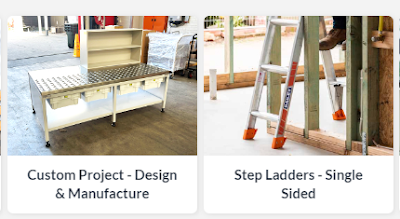The Ultimate Guide to Material handling equipment: Enhancing Efficiency in Warehousing
Every step of the supply chain process must be optimized to ensure timely
delivery and customer satisfaction. Among the crucial elements of warehouse
operations is order picking, the process of selecting items from inventory to
fulfill customer orders. And when it comes to order picking, having the right
tools can make all the difference. This is where material handling equipment
come into play.
Material handling equipment, also known as picking carts or order
fulfillment carts, are indispensable assets in modern warehouses and
distribution centers. These versatile carts are designed to streamline the
order picking process, enabling workers to gather items quickly and
efficiently. From small-scale operations to large-scale distribution centers,
material handling equipmentfrom reflexequip.com.au offer numerous benefits
that contribute to overall productivity and cost-effectiveness.
What is material handling equipment?
Material handling equipment come in various shapes, sizes, and
configurations, catering to different warehouse requirements and operational
workflows. However, they typically share common features designed to facilitate
the order picking process. Here are some key components of material handling
equipment:
· Storage Space: Material
handling equipment are equipped with shelves, bins, or compartments to
accommodate a wide range of products. The layout and configuration of the
storage space may vary based on the type of items being picked and the
frequency of orders.
· Mobility: Mobility is
essential in a dynamic warehouse environment. Material handling equipment are
equipped with sturdy wheels that allow them to move smoothly across different
surfaces, including concrete floors and warehouse aisles.
· Maneuverability:
Efficient maneuverability is crucial for navigating through narrow aisles and
tight spaces within the warehouse. Many material handling equipment feature swivel
casters or ergonomic handles for easy steering and control.
· Durability: Given the
rigorous demands of warehouse operations, material handling equipment are built
to withstand heavy loads and frequent use. They are typically constructed from
robust materials such as steel or aluminum, ensuring long-term durability and
reliability.
Types of Material handling equipment
Material handling equipment come in several types, each tailored to
specific warehouse requirements and operational workflows. Some common types
include:
Multi-Level Trolleys: These trolleys feature multiple shelves or levels,
allowing for efficient organization and storage of various items. Multi-level
trolleys are ideal for warehouses with a diverse product range and high order
volumes.
Pallet Trolleys: Pallet trolleys are designed to transport palletized
goods within the warehouse. They feature a flat platform or base that can
accommodate standard pallet sizes, making them ideal for bulk picking and
transportation.
Bin Trolleys: Bin trolleys are equipped with bins or compartments for
sorting and storing smaller items. They are commonly used in warehouses with a
high volume of small parts or components.
Order Picking Carts: These versatile carts are specifically designed for
the order picking process, with features such as adjustable shelves, tilt bins,
and ergonomic handles. Order picking carts are highly customizable to
accommodate different picking methods and inventory requirements.
Benefits of Using Material handling equipment
The adoption of material handling equipment offers several benefits for
warehouses and distribution centers:
Increased Efficiency: By providing workers with a designated space to
organize and transport items, material handling equipment streamline the
picking process, reducing the time and effort required to fulfill orders.
Improved Accuracy: With proper organization and labeling, material
handling equipment help minimize picking errors and ensure accurate order
fulfillment, enhancing customer satisfaction and reducing returns.
Enhanced Ergonomics: Ergonomic design features such as adjustable shelves
and comfortable handles reduce strain and fatigue for warehouse workers,
promoting a safer and more productive working environment.
Optimized Space Utilization: Material handling equipment maximize the use of available warehouse space by
efficiently organizing and storing inventory, minimizing clutter and congestion
in aisles and storage areas.
Flexibility and Versatility: With a wide range of configurations and customization
options, material handling equipment can be tailored to meet specific warehouse
requirements and adapt to changing operational needs.




Comments
Post a Comment